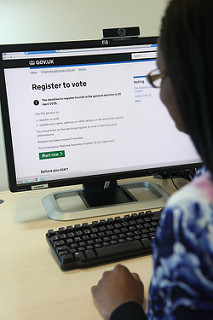Earlier this week in Colombo, we gathered together a group of civil society and human rights organisations. For different reasons, Sri Lanka and Maldives are priorities for human rights for the UK. That gives the High Commission access to the Magna Carta Fund, a strategic programme fund dedicated to tackling the root causes of human rights violations overseas. Successful projects will uphold democratic values and the rule of law, support an effective rules-based international order and promote a more stable world by upholding universal rights in tackling conflict and extremism.
We gathered all these potential partners together to increase our and their ability to bid successfully into the Fund, supporting our work with the Government of Sri Lanka to address long-standing human rights issues here, and with civil society in Maldives to protect a space which is under increasing threat. The bidding window is open until 8 February, and we look forward to some really strong bids this year, particularly on freedom of expression, preventing sexual and gender-based violence, torture prevention and building the capacity of women and women’s organisations to contribute to post-conflict processes.
Democracy is of course an essential building block for a secure and prosperous society. Regular readers may remember that last year, the British High Commission in Colombo spent almost 750 million Sri Lankan rupees (around £350,000) enabling more informed and additional observation, and better and more widespread voter education for Sri Lanka’s Presidential and General elections. Read my An Election Observed blog for more details.
Like charity, education begins at home. Elections are important wherever and whenever they take place. And you don’t always have to be resident in your own country to vote. The UK Electoral Commission is keen to increase the participation of overseas voters in British elections, and has designated today Overseas Voter Registration Day. It’s a good opportunity for all of the UK’s estimated 5.5 million citizens living overseas to register online to ensure they don’t miss out on their chance take part in the referendum on the UK’s membership of the European Union. Only 106,000 overseas electors registered to vote at the 2015 General Election: three times the number on the register ahead of the 2010 election, but still only a tiny fraction of those eligible.
To register as an overseas elector you must have been registered to vote in the UK in the last 15 years. You will also need to know your National Insurance number and date of birth, and have your passport to hand if you have one. If you don’t have a National Insurance number you can still register, but you may have to supply more information to show who you are.
Circumstances and countries may differ, but all over the world, Elections Commissions have very similar mandates: supporting and enabling well-run elections that reflect the will of the people. The British Government supports that at home and abroad.
For more information on bidding for the Magna Carta Fund click here

